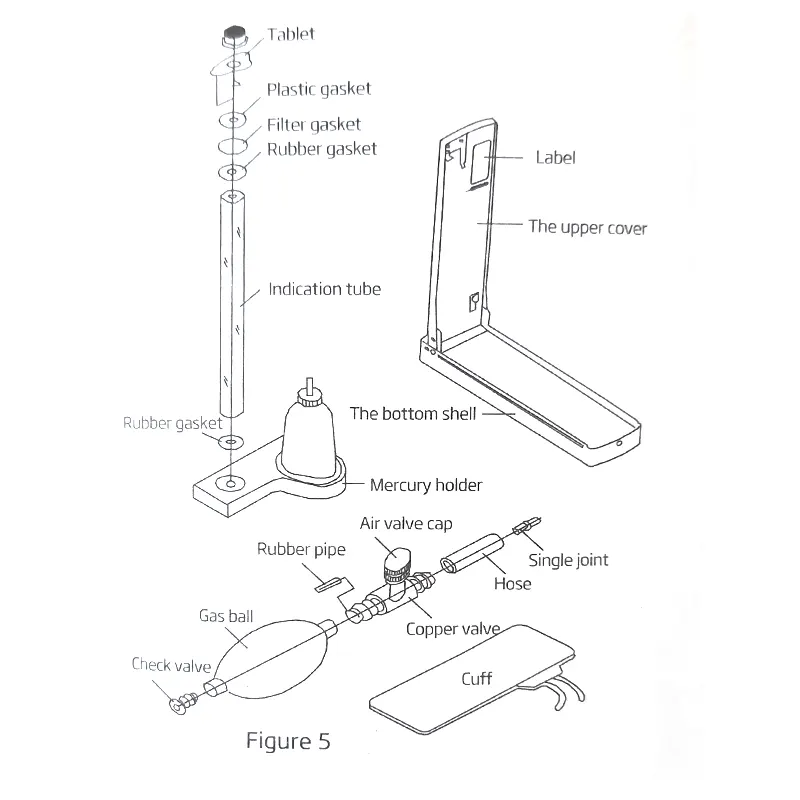- Highly Accurate & dependable
- Testing range: 0 – 300mmHg
- Minimum scale value: 2mmHG
- Universal cuff size (22 cm to 36 cm)
- Latex Bladder & Bulb
- Portable & Easy to carry
BP Mercury Lifecare Sphygmomanometer Usage
Things to consider before usage
- Operate in a quiet environment.
- Human body blood pressure is always changeable during a day, so you should measure blood pressure at same time everyday.
- The measurer ought to keep relaxed and free.
- The measurer ought to wear loose clothes.
- The minimum graduation on the scale is 2mmHg(0.5kPa).
How to check the Blood Pressure?
- Open the upper cover of sphygmomanometer box, check to find out whether the mercury level is exactly at 0 point on the scale. First to open the sphygmomanometer, it could has any air during conveying sometimes, air may run out when shaking slightly lower shell. Start measuring when the mercury lever is exactly at the 0 point.
- Takes a seat by the table and keep a comfortable posture when measuring.
- Lay an arm gently on the table, with the elbow kept a 45 angle
- Roll up the sleeve to upper arm before the cuff tied the arm so as to prevent clothes jammed.
- Spread flat the cuff, aiming the middle part of cuff at humerus artery, wind the strap around the upper arm, the lower edge of strap ought to be 3 centimeters above elbow joint.
- The winding strap should be kept a moderate tightness, generally, one or two fingers can be inserted into the gaping(Figure 2).
- Put the stethoscope head into and under the strapgaping. And put it on the humerus artery.
- Adjust the arm and keep the same height with the user’s heart
- Soft mattress can be used to raise the arm if necessary.
Start measuring after all of the above mentioned preparations completed.
USE METHOD
- Tighten the air-valve-cap, pump air into the cuff with gas ball, and pay attention to watching and listening.
- When the humerus artery pulse is overwhelmed, continue pumping to raise the air pressure 2.5-4 Kpa (20-30mmHg), then stop.
- After stopping pumping, loosen air-valve-cap to release the air from the cuff slowly at a speed of 0.5Kpa (3-4mmHg) reduction per second.
- Pay attention to monitor. When you hear the first clear pulse Pat-Pat noise through the stethoscope, the valve showed by the mercury column means systolic pressure.
- The finger lowers and lowers, the pulse noise through the stethoscope becomes gradually stronger and then changes into miscellaneous noises, when suddenly the tone becomes muffled, the valve showed by the mercury column means diastolic pressure.
- Repeat the measuring 2-3 times, and keep records of the averaged valve data as blood pressure measured.
- Compare the measured blood pressure with normal valves, the new measured valves should not be too high or too low. Otherwise, please go to hospital for further examination.
ATTENTION:
- > To prevent from mercury’s spill during using, do not raise the pressure higher than 38 Kpa (285mmHg).
▸ After measuring the mercury lever is exactly at the 0 point, then close the Sphygmomanometer. The lower shell ought to be horizontal during











Reviews
There are no reviews yet.